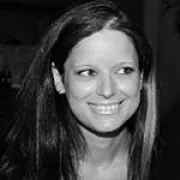You are a big part of your picture. Even when you are trying to blend in and be invisible on the scene, you are still behind that lens. You own that frame, that fragment of reality, so claim it.
Ever since its invention in the 19th century, photography has been used to document life. At the same time, it focuses on inviting audiences to a rather subjective world while trying to be taken seriously as an art form. Photography has always been considered a male-dominated profession, but luckily, things are changing. Scholars, writers, bloggers, photography students, and enthusiasts have been giving credit to the female pioneers of the field. Most were always standing and/or hiding in the shadows, oblivious to how much they could claim and accomplish. Arguably, the techniques, concepts, and themes female photographers use differ from those of male photographers. At a time when most women were convinced that their place was in the kitchen and certainly not in the dark room, some were struggling to surpass their male counterparts and work towards gaining respect and recognition for their work.

Rena Effendi (Azerbaijani photographer, 1977-) was born in Baku and studied linguistics at the Azerbaijan State Institute of Languages. She began photographing in 2001 and became a full-time photographer in 2005 after quitting her job as an Economic Development Specialist at the United States Agency for International Development in Baku. Effendi's first monograph, Pipe Dreams, published by Mets & Schilt, examines the impact of the oil industry on the lives of ordinary citizens in Azerbaijan, Georgia, and Turkey along the Baku-Tbilisi-Ceyhan pipeline. She initially got a commercial assignment from BP, the oil consortium that operates this pipeline from Azerbaijan via Georgia to the southern Turkish port of Ceyhan. While photographing this promotional material, she discovered that just a small percentage of the urban population in her country is benefiting from the oil boom. Over the course of 6 years, this work was turned into Pipe Dreams.
Effendi has also produced stories in Chernobyl after the nuclear disaster of 1986, transgender people in Istanbul, village life in Khinalug, the Russia-Georgia war of 2008, the life of youth in Tehran, Russia, and Cairo. She published this work in 2010 with the title Chernobyl: Still Life in the Zone. In the work, she decided to showcase people's lives in the zone instead of a memento.
Her work has been published in The International Herald Tribune, Newsweek, The Financial Times, Time Magazine, National Geographic, Marie Claire, Courrier International, Le Monde, and L'Uomo Vogue. She has exhibited her photographs in the Saatchi Gallery in London, the Aperture Gallery in New York, the Istanbul Modern, Venice Biennial, and Art Basel. She has won the Fifty Crows Documentary Award, the Mario Giacomelli Memorial Award, and the Getty Images Editorial Grant. In 2008, National Geographic Magazine honoured her with an All Roads Photography Award. In 2009, she received the Young Photographer in the Caucasus Award, and in 2011, she won a Prince Claus Award. She won 3rd prize in the Observed Portraits category at the 2014 World Press Photo Contest, Amsterdam, Netherlands, for Transylvania: Built on Grass. The freelance photographer's work focuses on themes of environment, post-conflict society, the effects of the oil industry on people, and social disparity.
Rena Effendi's photographs draw attention to things that would otherwise be overlooked or unseen; her work seems to portray tenderly the clash between delicacy and brutality.

Many of us choose to document bleak realities, but we do so in a way that is more focused on human dignity and our ability to survive — for me, that embodies hope.

We will continue talking about female names that left their mark on photography and about contemporary female photographers who are still emerging. There are a lot of female photographers out there deserving of praise, and we can only hope to cover as many of them as we can. Please follow this space to find out more.







